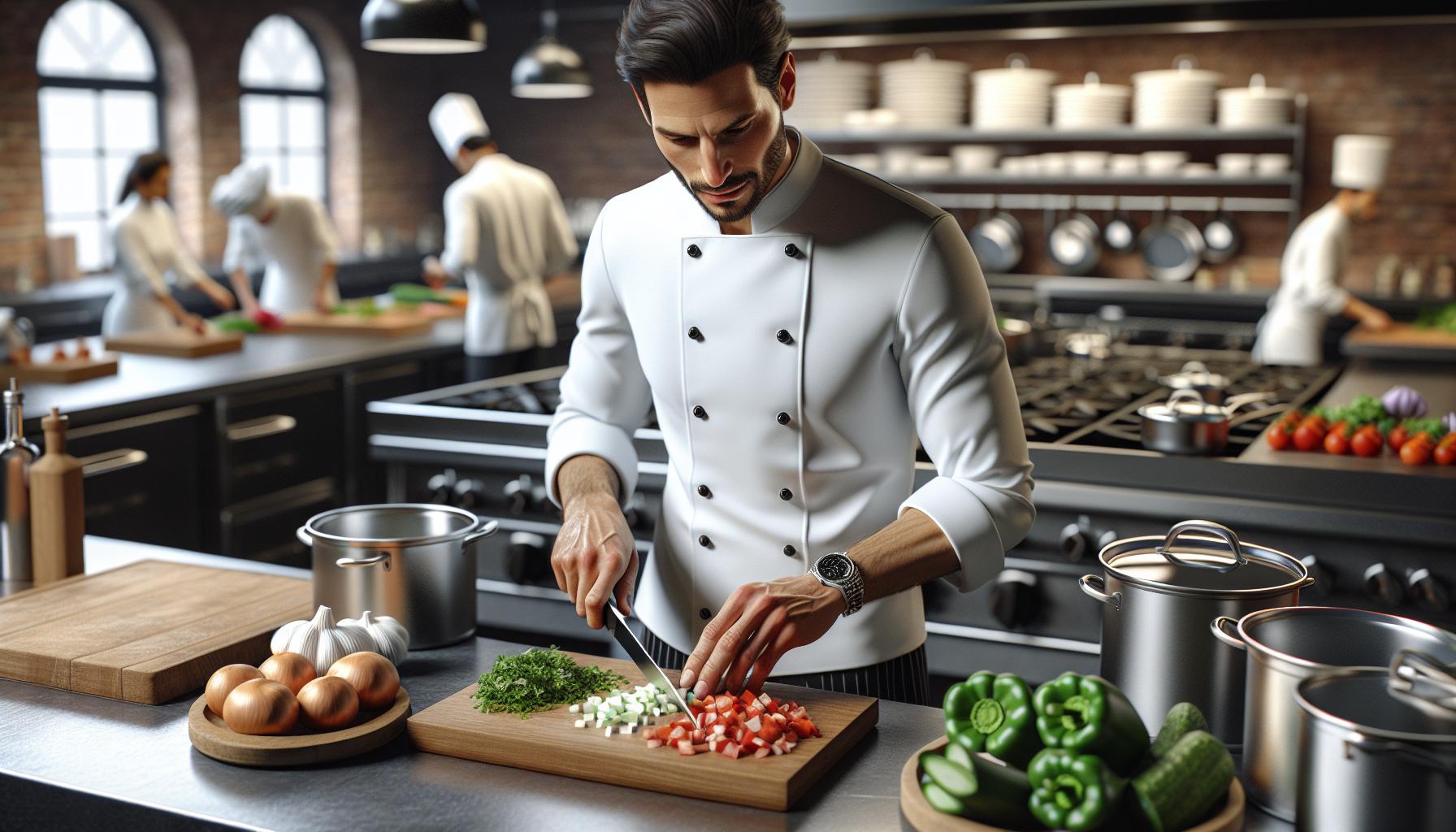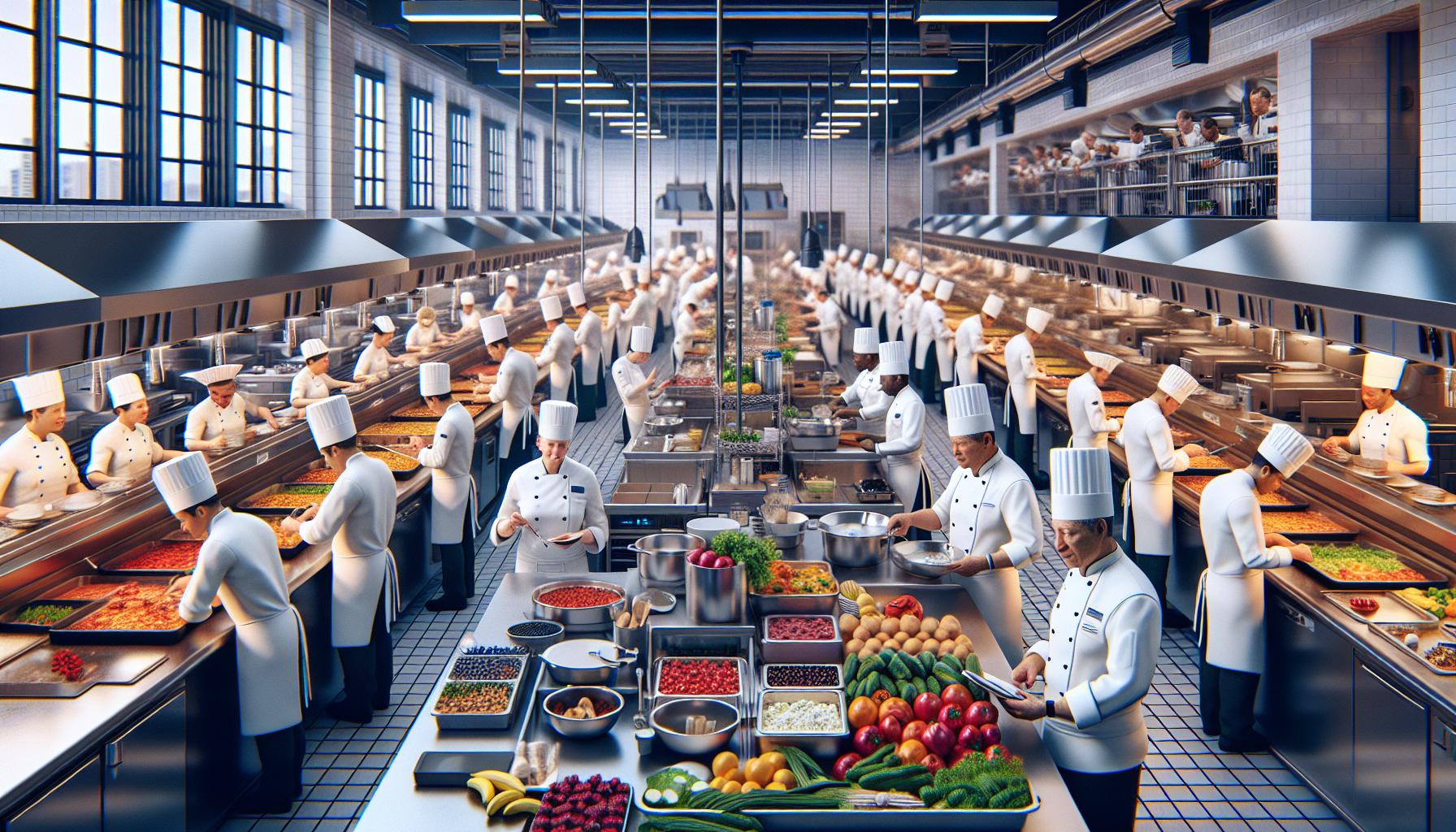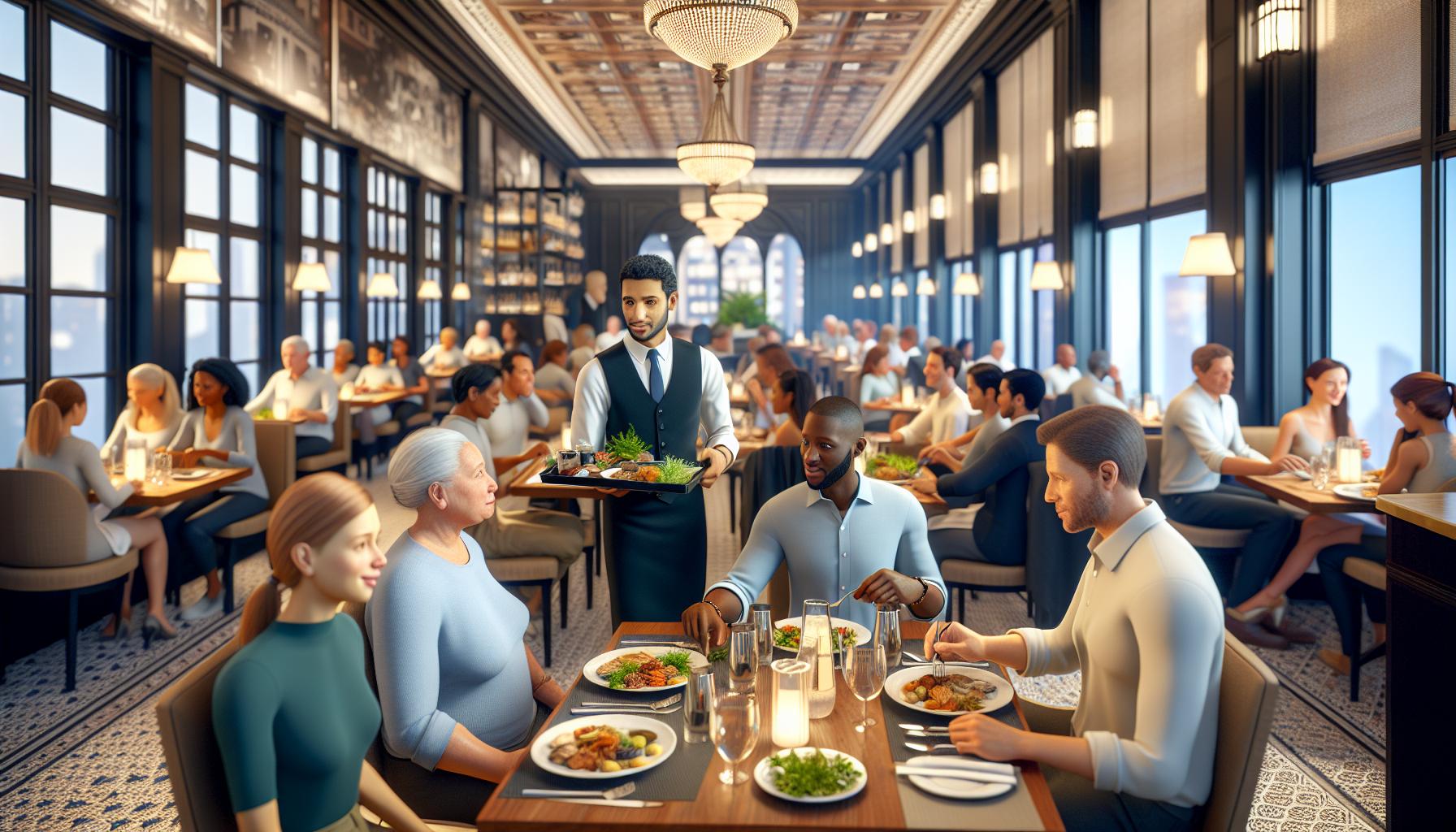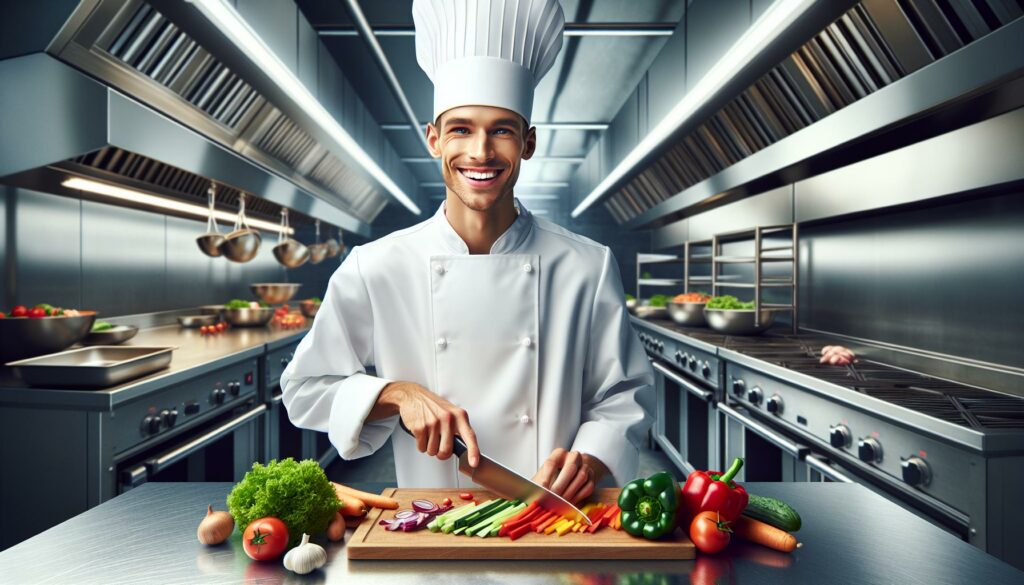The world of culinary arts and hospitality isn’t just about flipping pancakes or making fancy beds – it’s an exciting fusion of creativity, precision and the art of making people smile. From five-star restaurants to luxury hotels these industries transform everyday experiences into unforgettable moments.
Behind every perfectly plated dish and seamlessly executed hotel stay lies a dynamic team of professionals who’ve mastered both technical skills and the delicate art of customer service. Whether it’s a chef crafting the perfect soufflé or a concierge arranging a last-minute anniversary surprise these experts work tirelessly to create magic in every guest interaction. As the hospitality industry continues to evolve with modern trends and innovative concepts it’s become one of the most vibrant and rewarding career paths for those who love to combine creativity with service excellence.
Culinary Arts and Hospitality
Culinary arts and hospitality merge technical expertise with service excellence. These fields intertwine food preparation mastery with guest satisfaction principles to create exceptional experiences.
Core Elements of the Industry
The culinary arts and hospitality sector operates on five fundamental pillars: food production, service delivery, guest relations, facility management and business operations. Professional kitchens function through a structured brigade system, with executive chefs overseeing specialized stations like garde manger, pastry and sauté. Front-of-house operations encompass reservation management, guest services and dining room coordination. Quality control measures ensure consistent food preparation standards while adhering to health regulations. Resource management involves inventory control, cost analysis and supplier relations.
Career Paths and Opportunities
The industry offers diverse career trajectories across multiple specializations. Executive chefs lead kitchen operations in restaurants, hotels and resorts, while pastry chefs focus on desserts and baked goods. Hotel managers oversee property operations from guest services to facilities maintenance. Food and beverage directors coordinate dining services for large venues. Catering managers organize events ranging from corporate functions to weddings. Restaurant consultants provide expertise in concept development and operational efficiency. Culinary educators train future professionals in technical schools and universities. Food critics and writers document industry trends and review establishments.
Essential Skills for Success

Mastering culinary arts and hospitality demands a diverse skill set. Success in this industry combines technical proficiency with exceptional service delivery capabilities.
Technical Culinary Expertise
Professional culinary expertise encompasses knife skills, flavor composition, food safety protocols, cooking techniques, plating aesthetics, recipe development, and kitchen management. Expert chefs demonstrate precision in cuts like julienne, brunoise, and chiffonade while maintaining exact temperature control for different cooking methods. The ability to execute classical French techniques forms the foundation, complemented by knowledge of international cuisines and modern gastronomy. Professional kitchens require mastery of equipment operation, inventory management, food cost control, and adherence to health department regulations.
Customer Service Excellence
Exceptional customer service in hospitality centers on anticipating guest needs, reading non-verbal cues, and delivering personalized experiences. Service professionals excel at clear communication, active listening, problem-solving, and maintaining composure under pressure. They demonstrate cultural awareness when interacting with international guests, adapt service styles to match guest preferences, and coordinate seamlessly with different departments. Top hospitality professionals master the art of recovery service, transforming potentially negative situations into positive experiences through empathy, quick thinking, and creative solutions.
Professional Kitchen Operations

Professional kitchen operations encompass structured systems and protocols that ensure efficient food production and maintain high standards of quality and safety. Modern commercial kitchens operate with precision timing and clear organizational hierarchies to deliver consistent culinary excellence.
Kitchen Brigade System
The kitchen brigade system organizes culinary staff into specialized roles with distinct responsibilities. Executive chefs lead the hierarchy, overseeing menu planning and kitchen management. Sous chefs serve as second-in-command, supervising daily operations and staff performance. Station chefs (chef de partie) manage specific cooking areas: sauté, grill, pastry, garde manger (cold foods), and sauces. Line cooks execute cooking tasks under station chef guidance, while prep cooks handle ingredient preparation and mise en place. This hierarchical structure enables seamless workflow coordination, quality control standardization and efficient service delivery during peak dining periods.
Food Safety and Sanitation
Food safety protocols protect customer health through systematic temperature monitoring and contamination prevention. Proper food storage requires refrigeration at 40°F or below for perishables and freezer storage at 0°F for frozen items. Kitchen staff maintain separate cutting boards for raw meats, vegetables and ready-to-eat foods. Hand washing stations equipped with soap and paper towels enable frequent hand sanitization. Critical control points include receiving temperatures, cooking temperatures and holding temperatures for prepared foods. Regular cleaning schedules incorporate sanitizing food-contact surfaces, equipment maintenance and pest control measures. Health department compliance requires documentation of temperature logs, cleaning records and staff training certifications.
Restaurant Management Fundamentals

Restaurant management integrates operational efficiency organizational leadership planning financial oversight to create successful dining establishments. Strategic management practices optimize service delivery operations guest satisfaction revenue generation.
Front-of-House Operations
Front-of-house operations encompass guest interactions service coordination dining room management. Restaurant hosts manage reservations seat guests maintain optimal dining room flow. Servers demonstrate product knowledge execute proper service sequences handle payments process special requests. Floor managers oversee staff performance monitor service standards resolve guest concerns maintain service timing. Point-of-sale systems streamline order processing payment transactions inventory tracking. Service stations contain essential supplies equipment to support efficient meal service delivery. Comprehensive training programs ensure staff maintains service standards guest satisfaction protocols brand consistency.
Financial Planning and Control
Financial management starts with detailed budgeting cost analysis profit margin monitoring. Daily sales reports track revenue patterns identify peak business periods guide staffing decisions. Food cost percentages range between 28-35% while labor costs average 25-35% of total revenue.
| Cost Category | Target Percentage |
|---|---|
| Food Cost | 28-35% |
| Labor Cost | 25-35% |
| Overhead | 15-20% |
| Profit Margin | 10-15% |
Inventory management systems track product usage prevent waste optimize ordering cycles. Break-even analysis determines required sales volume to cover operational expenses. Pricing strategies balance market competition food costs desired profit margins. Regular financial audits ensure accurate reporting proper cash handling procedures compliance standards.
Modern Trends in Food Service
The culinary industry continues to evolve with innovative approaches to food preparation service delivery. These transformations reshape how restaurants operate enhance guest experiences.
Farm-to-Table Movement
Farm-to-table dining emphasizes direct sourcing from local farmers producers. Restaurants partner with nearby farms to obtain fresh seasonal ingredients harvested within 100 miles of their location. This movement promotes sustainable agriculture practices supporting local economies while delivering peak-flavor ingredients to diners. Chefs create rotating menus based on seasonal availability featuring heirloom vegetables heritage breed meats specialty crops. Many establishments maintain their own kitchen gardens herb plots rooftop greenhouses to ensure immediate access to fresh produce.
Technology Integration
Digital systems revolutionize restaurant operations through integrated solutions. Point-of-sale systems sync with kitchen display screens inventory management software mobile payment platforms to streamline service. Online reservation platforms handle 85% of fine dining bookings while tablet menus enable instant ordering customization options. Smart kitchen equipment monitors cooking temperatures tracks food safety metrics automates routine tasks. Mobile apps facilitate contactless ordering delivery services accounting for 60% of takeout sales. Cloud-based management systems enable real-time data analysis inventory control staff scheduling optimization across multiple locations.
Hospitality Service Standards
Hospitality service standards establish benchmarks for excellence in guest satisfaction industry-wide. These standards form the foundation for delivering consistent high-quality experiences across all touchpoints.
Guest Experience Management
Guest experience management centers on creating personalized interactions that exceed expectations. Service professionals implement targeted strategies through pre-arrival communications personal greetings room customization preferences. Front-line staff maintain detailed guest profiles tracking preferences allergies special occasions to enhance future stays. The service recovery protocol addresses concerns within 15 minutes maintaining a 98% guest satisfaction rate. Hotels utilize mobile apps digital concierge services 24/7 support channels to provide seamless assistance. Staff training focuses on emotional intelligence cultural awareness body language interpretation to deliver authentic interactions.
Quality Assurance
Quality assurance programs monitor service delivery through systematic evaluations inspections audits. Mystery shoppers conduct quarterly assessments measuring 127 service touchpoints from check-in to checkout. Department managers perform daily briefings inspections ensuring 100% compliance with brand standards. Digital feedback systems capture real-time guest responses triggering immediate service recovery when satisfaction drops below 95%. Standard operating procedures outline precise steps for 47 core guest interactions ensuring consistency across all shifts. Performance metrics track response times cleanliness scores service efficiency generating monthly improvement targets for each department.
Culinary Education and Training
Professional culinary education combines structured academic learning with hands-on kitchen experience to develop skilled culinary professionals. Modern culinary training programs integrate traditional techniques with contemporary industry practices.
Formal Degree Programs
Culinary arts degree programs offer comprehensive education through accredited institutions like the Culinary Institute of America Le Cordon Bleu. Associate degrees typically span 2 years focusing on foundational cooking techniques advanced knife skills kitchen management food safety. Bachelor’s programs extend to 4 years incorporating business management nutrition science menu development advanced cooking methods. Students participate in supervised kitchen laboratories gain real-world experience through industry internships. Programs include specialized courses in:
- Classical French cuisine fundamentals
- International cooking techniques
- Baking pastry arts principles
- Restaurant operations management
- Food cost control systems
- Wine beverage studies
Industry Certifications
Professional certifications validate specific culinary competencies enhance career advancement opportunities in the hospitality industry. The American Culinary Federation offers multiple certification levels:
- Certified Culinarian (CC) for entry-level professionals
- Certified Sous Chef (CSC) for kitchen supervisors
- Certified Executive Chef (CEC) for senior culinary leaders
- Certified Master Chef (CMC) for elite industry professionals
Additional certifications include:
- ServSafe Food Protection Manager Certification
- Certified Food Safety Manager (CFSM)
- Certified Hospitality Supervisor (CHS)
- Wine Spirit Education Trust (WSET) certifications
These credentials require documented work experience practical examinations continuing education hours to maintain active status.
The Future of Culinary Arts and Hospitality
The culinary arts and hospitality industry stands as a dynamic field that combines artistry technical expertise and exceptional service. From professional kitchen operations to modern technological innovations this sector continues to evolve while maintaining its core focus on creating memorable experiences.
Success in this field demands a perfect blend of technical skills creativity and unwavering dedication to guest satisfaction. Whether through formal education hands-on training or industry certifications professionals in culinary arts and hospitality have numerous paths to growth and advancement.
As the industry embraces new trends and technologies while honoring traditional techniques it remains an exciting career choice for those passionate about food service and creating exceptional guest experiences. The future of culinary arts and hospitality promises continued innovation while maintaining its foundational commitment to excellence.

